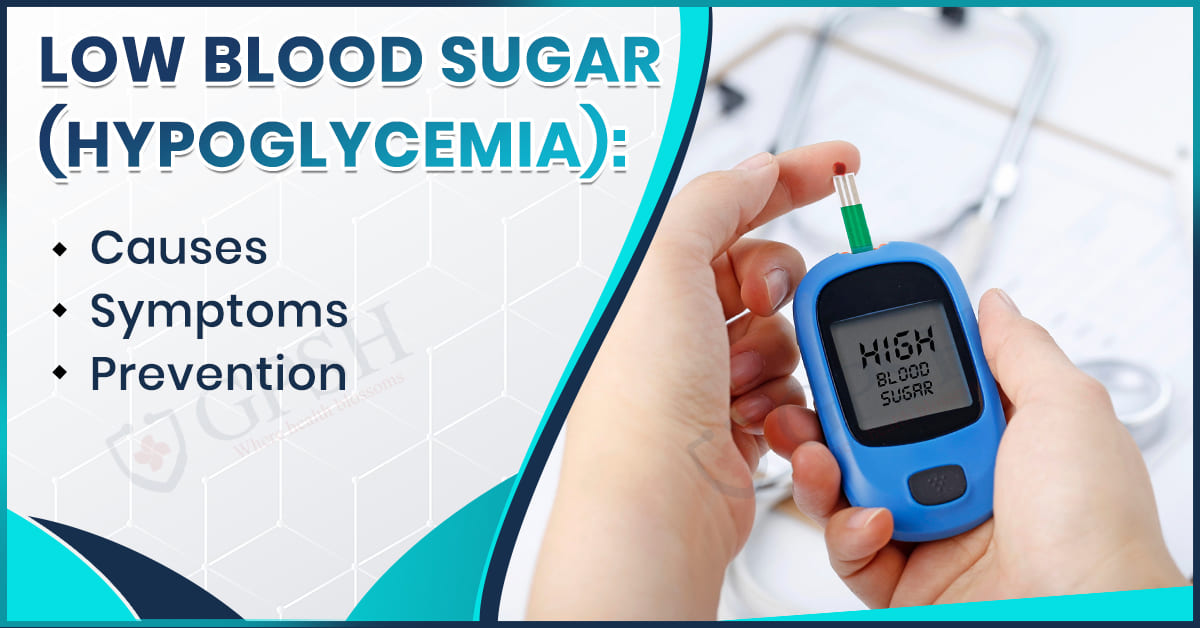Introduction
From days of suffering contraception to days of uncertainty, stress, and even discomfort, irregular periods are a common concern in women of all ages.
A cycle arriving too early, too late, or not coming at all is something that women have to learn to deal with sometimes. Sometimes the cause of irregular periods goes beyond just reproductive health, extending to overall health of the woman as well.
In this article, we will be discussing what irregular periods are, symptoms of irregular menses that you should keep an eye on, most common reasons for irregular menses, and various other causes associated with irregular menses. We will explore treatments for the irregular period, both natural and medical, so that you can best decide on a course of action for your health.
What Are Irregular Periods and Why Do They Happen?
Menstrual irregularities happen when the menstruation period is absent of regularity or rhythmic intervals. An expected date for the menstrual cycle is between 21 to 35 days. However, a period appearing prematurely or late, skipping a month, or with exceptionally varied flow is termed irregular. This might include skipping periods, very heavy or very light menstrual flow, spotting between cycles, or unpredictable timing every month.
Hormonal imbalances happen to be one of the key causes: Think about PCOS or thyroid disorder. High levels of stress might also cause irregular periods. Other causes include sudden weight changes, excessive physical exertion, medications, or some other problems affecting your health. Finding the cause of your irregular periods is the first step toward finding the right solution for balancing your health hormones and reproductive system.
How Can You Identify the Symptoms of Irregular Periods?
Early symptom recognition can provide insight into irregular periods, thereby enabling you to take timely action for better regulation. Every woman has her own set of peculiarities, but a few tell-tale signs of irregular periods show up in most cases.
Periods have certain features you may notice:
- Coming much earlier or too late to the occurrence every month
- A missed period for one or two cycles
- Heavy to light bleeding
- Spotting between periods
- Huge cramps and hormonal mood swings
You Can Also Read:- Blood Sugar Level Chart: A Simple Guide to Normal Ranges
What Causes Irregular Periods? Understanding Medical and Lifestyle Triggers

There are several factors that can interfere with the natural rhythm of your menstruation. Knowing the causes behind irregularity of periods helps in the right choice toward treatment and prevention. A few of these causes are often placed into two broad categories: medical and lifestyle.
Medical Causes of Irregular Periods:
- Polycystic Ovarian Syndrome (PCOS): A very common hormonal disorder affecting ovulation.
- Thyroid Disorders: Both hypothyroidism and hyperthyroidism can cause irregularities in the cycle.
- Uterine Fibroids or Endometriosis: These kinds of conditions have an effect on duration, flow, and pain of periods.
- Chronic Illnesses: Conditions such as diabetes or celiac disease can interfere with menstrual balance.
- Perimenopause or Menopause: Natural hormonal changes occurring with ageing may cause irregular or missing periods.
Lifestyle Triggers for Irregular Periods:
- Stress: High stress, be it emotional or physical, can mess up hormone levels.
- Weight Fluctuations: Sudden weight gain or loss can meddle with estrogen levels.
- Over-Exercising: Excess physical activity can bring on missed periods.
- Poor Nutrition or Eating Disorders: These can affect the hormones that regulate your cycle.
- Travel or Sleep Disruptions: Changing time zones or inconsistent sleep patterns may also impact your cycle.
Why Are Your Periods Irregular? Top Medical Reasons Explained
If you’ve ever wondered why your periods weren’t coming on time, then you’ve come across one of the very common concerns of many women. Most women experience irregular cycles at some point in their lives; while changes here and there can be normal, however, persistent irregularity usually signals an underlying medical condition.
Herein are some of the major medical issues that cause irregular periods:
- Polycystic Ovary Syndrome (PCOS): One very common cause, PCOS affects hormone levels and thus interferes with normal ovulation.
- Thyroid Imbalance: Whether hypothyroid or hyperthyroid, thyroid problems can affect your metabolism and hormone production, thus interfering with your cycle.
- Perimenopause and Menopause: As women approach menopause, hormonal fluctuations often lead to irregular or absent menstruation.
- Uterine Problems: Fibroids, polyps, or endometriosis can all cause irregular bleeding and disrupt the normal cycle.
- Chronic Illnesses: Conditions such as diabetes and celiac disease can cause irregularity in menstruation, if only indirectly, acting on the hormone balance somehow.
- Medication: Certain medications, including antidepressants, antipsychotics, or chemotherapy treatments, can mess up your periods.
You Can Also Read:- Yoga for a Healthy Heart: Poses and Practices to Boost Cardiovascular Wellness
What Are the Best Treatment Options for Irregular Periods?
Treatments for irregular periods depend on the cause of the problem. After the cause is found, whether it is hormonal, lifestyle-related, or a medical issue, the medical practitioner will advise the most effective solution.
Some of the best treatment options for irregular periods are as follows:
- Hormonal Therapy: If the irregularity is due to hormonal imbalance, birth control pills or hormone-releasing IUDs are often prescribed by doctors along with other medications to regulate your cycle.
- Treating Underlying Conditions: Treatment of conditions such as PCOS, thyroid disorders, or diabetes with proper medication and regular monitoring can restore normal periods.
- Lifestyle Changes: Keeping fit, stress management, ample sleep, and good nutrition are essential factors to improving one’s menstrual health. Even a little change in exercise and eating habits does matter.
- Natural and Ayurvedic Remedies: For minor cases, some may find relief by trying these herbal cures, yoga, and alternative medicine, but professional guidance must be sought.
- Surgical Options: In cases of fibroids, endometriosis, or other structural abnormalities, surgical intervention may be necessary to restore a regular cycle.
When Should You See a Doctor for Irregular Periods?
Some irregularities in a menstrual cycle are perfectly normal; however, there exist cases that require an expert’s intervention. Continuing changes in your menstrual cycle might delay a diagnosis of some serious health problems.
Certain signs show that you need medical intervention:
- You still miss periods for over three months (and are not pregnant).
- Your periods come too often (21 days or less) or too far apart (more than 35 days apart).
- You experience heavy bleeding fast enough to soak through a pad or tampon.
- You experience bleeding between your periods or after intercourse.
- You have severe cramps, fever, or any unusual symptom with your cycle.
- Trying to conceive but facing a very unpredictable menstrual cycle.
How to Manage Irregular Periods Naturally Through Lifestyle Changes
Looking for a natural way to balance your menstrual cycle? You are among many women who wish to manage irregular periods using lifestyle adaptations that promote hormonal health before going the medicinal route. Here’s a quick rundown on how you can give your cycle a natural boost and improve your general health:
- Maintain healthy weight: Being underweight or overweight brings about changes in levels of hormones that may interfere with the ovulation process. Variations in weight influence the presence of regular menstruation; hence, achieving and sustaining a steady weight supports normal cycles.
- Eat clean: Whole foods should be your focus, most especially vegetables such as leafy greens, fruits, whole grains, nuts, and healthy fats. Always avoid sugars and processed foods that, in one way or another, would work against hormonal balance.
- Workout moderately: Regular exercise supports hormone regulation and improves blood flow while keeping stress down. Strenuous or extreme exercise, however, could result in missed or delayed menses.
- Reduce stress levels: Stress, when chronic, interferes with your hormonal rhythm. Meditation, deep breathing, journaling, or yoga could serve to calm your system down and rebalance it.
- Keep your sleepneutronhermconsistent: Consistent and regular sleeping patterns enhance the healthy release of hormones. Aim for 7 to 8 hours of good sleep every night.
- Keep your caffeine and alcohol level low: Heavy doses of caffeine and alcohol could interrupt your cycle due to their troubles with hormonal signaling, particularly estrogen levels.
What Health Conditions Are Linked to Irregular Periods?
Irregular periods are commonly more than a mere timing issue; they serve as warning symptoms of a deeper health concern requiring medical treatment. Being able to associate health conditions with irregular periods will help you understand when your body might be trying to signal something serious.
- Polycystic Ovary Syndrome (PCOS): This disorder of the hormones is one of the most common reasons for irregular periods. It interferes with ovulation and commonly results in late, missed, or irregular cycles.
- Thyroid disorders: Both hypothyroidism and hyperthyroidism work to throw your menstrual cycle out of sync by interfering with hormone production and metabolism.
- Endometriosis: This condition causes tissues akin to the uterine lining to grow outside the uterus, thereby making the periods painful and irregular.
- Uterine fibroids: These non-malignant tumors in the uterus can usher in periods of heavy bleeding, prolongation of menses, and irregularities in cycles.
- Diabetes and insulin resistance: Blood sugar disturbances cause hormone imbalances and irregular ovulation, therefore irregular menstruation.
- Eating disorders or extreme dieting: Conditions such as anorexia and bulimia put a halt to reproductive functions, causing missed or irregular cycles.
- Perimenopause: As the woman nears menopause, her hormone levels begin to change, thus naturally ushering in cycle irregularities or irregular bleeding.
Conclusion
Irregular periods are not just a monthly bother-there are chances of deeper hormonal or medical issues which must not be ignored.
From PCOS and thyroid problems to stress and lifestyle factors, it is crucial to know the reason behind it to effectively treat the symptoms. With expert counseling, irregular periods can be remedied, or living days may see a total cure. If you are noticing any irregularity in cycles, heavy bleeding, or missed periods, it is time to see a specialist.
The Gynecology Department at Shekhawati Hospital provides expert diagnosis and a completely tailor-made treatment plan to help women build up strength and take control of their menstrual health. The sooner the intervention takes place, the sooner their cycles get regularized, along with the protection of their long-term reproductive well-being.








